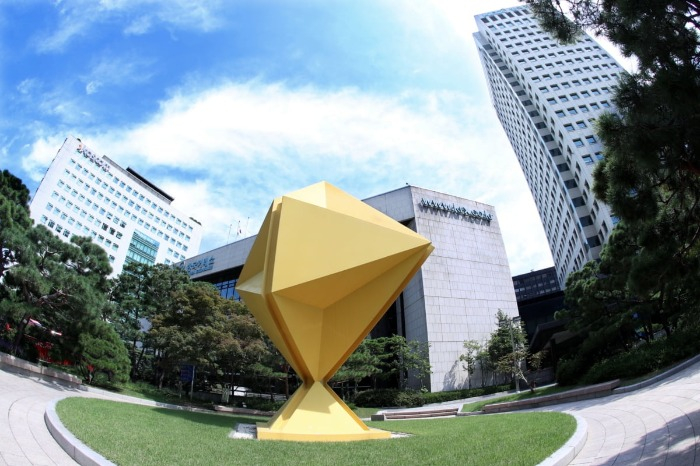South Korean companies listed on the main bourse Kospi broke records in terms of annual sales, operating profit and net profit last year. Some economically sensitive stocks, such as maritime transport & airline, chemicals and steel & metal shares, saw spikes in performance. However, analysts forecast the profit growth rates to decline this year due to surging raw material prices and labor costs.
In 2021, the 595 firms on the Kospi achieved 2.3 quadrillion won ($1.9 trillion) of sales on a consolidated basis, up 19.82% from the previous year. Their combined operating profit jumped by 73.59% to 184 trillion won, and net profit soared by 160.56% to 156.6 trillion won, according to the Korea Exchange (KRX) and Korea Listed Companies Association (KLCA).
Excluding Samsung Electronics Co. making up 12.16% of the main bourse, the Kospi-listed firms’ annual sales, operating profit and net profit respectively increased by 20.06%, 89.09% and 246.36%. “As most of the companies are exporters, they benefit from surging global consumption in the early stage of the global economic recovery,” said Jeong Myung-ji, head of investment and research at Samsung Securities Co.
The Kospi saw sales hikes in all its 17 indices, and the medical precision index, which includes medical test kit firms like SD BioSensor Inc., posted the highest sales growth rate of 45.68%. The transport & storage index, which has Korea’s top container line HMM Co. and flag carrier Korean Air Lines Co., saw a 33.2% increase in sales. The steel & metal, chemicals, electrical & electronic indices also stood out, achieving sales increases of 32.58%, 30.17% and 22.21%, respectively.
By operating profits, transport & storage posted the highest increase of 569.57%. The chemical followed with 351.25%, and steel & metal, textile and wearing apparel, services respectively posted 268.63%, 118.94% and 81.69%. On the other hand, the electricity & gas index had an operating loss as the government and Korean power utility KEPCO Co.
froze electricity rates last year. The construction index also saw a 4.34% decline in operating profit.
PRESSURED BY STRONGER DOLLAR, COST INCREASESThe secondary bourse Kosdaq also posted robust performances. The aggregate sales of the 1,048 Kosdaq firms was 218.5 trillion won in 2021, 18.28% up from the previous year. The combined operating profit of the companies was 16.6 trillion won, up 49.66%. Their net profit soared by 170.96% to 13.4 trillion won last year.
The Kosdaq-listed companies’ profitability and financial solvency also improved. Their operating profit-to-sales rose by 1.17% to 7.62%, and the net profit to sales increased by 3.45% to 6.13%.
According to financial data company FnGuide, 183 Korean companies, the performances of which are estimated by at least three securities firms, posted a 16.07% hike in sales and a 1.58% increase in operating profit during the first quarter of 2022, compared with the same period of 2021. Over the same period, net profit is estimated to decline by 30.98%. The records show steep declines from the first quarter of 2021, when the sales, operating profit and net profit increased by 9.08%, 131.73% and 361.04%, respectively. “The stronger dollar and hikes in raw materials and logistics costs will pressure Korean exporters’ performances,” Jeong said.
Write to Sung-Mi Shim at
mshim@hankyung.comJihyun Kim edited this article.





